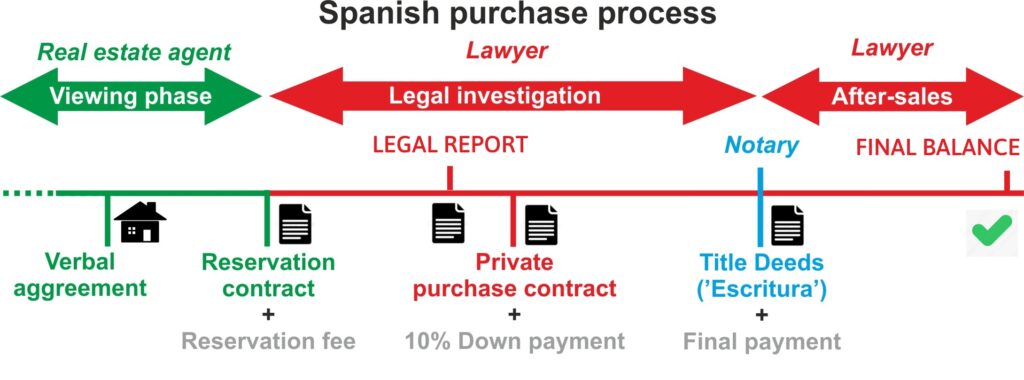BAN OF NEW HOLIDAY LETS IN MALAGA CITY

On 22 August, the City Council of Malaga published a resolution in the Provincial Official Gazette (BOP) banning new holiday lets throughout the city for a maximum period of three years.
For this ban, the City Council argues that there are imperative circumstances of general interest, this being the main argument to establish it.
Even though this ban on new holiday lets is now general, i.e. it applies to the entire city, the City Council had already banned new holiday lets in 43 neighbourhoods in the city last May, taking into account the extremely high number of holiday lets in those neighbourhoods.
What does the Malaga City Council aim to achieve in the medium and long terms as it relates to holiday lets?
During the period of the ban on new holiday lets, the Malaga City Council aims to pass an amendment to its General Urban Development Plan (PGOU), in order to differentiate tourist use from residential use.
In other words, the City Council aims to establish a specific regulation for different tourist uses in order to have clear regulations that allow for regulating and controlling holiday lets in their different forms.
When this amendment of the PGOU is established, expressly regulating holiday lets in the city, we understand that the ban will be lifted and their regulation will be based on the PGOU.
What is the trend in other Andalusian municipalities as it relates to holiday lets?
The situation is very different depending on the occupancy rates of holiday lets in each municipality and tourist pressure.
As we have stated on several occasions, some provincial capitals like Malaga, Granada, Seville, Cadiz and Cordoba have already limited and restricted the registration of new holiday lets.
Other tourist municipalities in the Costa del Sol, such as Fuengirola, have also decided to limit and restrict holiday lets. Yet other municipalities, such as Marbella, Estepona, Mijas, Nerja, Rincón de la Victoria and Benalmádena, have not prohibited or restricted holiday lets.
This means that, today, the vast majority of municipalities of the Andalusian Mediterranean coast: Costa del Sol, Costa Tropical, Costa de la Luz and Costa de Almería, have no restrictions on the registration of new holiday lets.
What is the main limitation or restriction on holiday lets at the national level?
The Law on Horizontal Property (LPH) entered into force on 3 April, establishing the obligation to obtain express authorisation from the Homeowners’ Association (CP) to engage in holiday letting operations. All buildings or homes that are part of a CP will have to request authorisation from the CP if they want to use the homes as holiday lets.
Properties where such activities were already taking place before 3 April and which had a licence to be used as holiday lets will not need to request authorisation, as regulations cannot be applied retroactively.
What is the current situation in terms of transferring existing holiday letting licences in Andalusia?
When a property with a letting licence is being transferred through a sale, for instance, if the buyer intends to engage in holiday letting activities, the relevant form must be filed to transfer the licence to the new owner.
Currently, in the process to request a transfer of the letting licence to the new owner, the Regional Government of Andalusia has been requesting authorisation from the CP to transfer the licence to the buyer. The Regional Government understands that the licence is not tied to the property but, instead, it’s personal, and the legal requirements in force at the time of the transfer must be met.
However, on 30 July, an appeal relating to a property that the Malaga Property Registry no. 4 refused to register was successful. The Directorate General of Registry Certainty and Public Certification established, in that resolution, that the holiday letting licence in Andalusia is not personal but real and tied to the property and not to the previous owner.
This means that, when a home with a holiday letting licence changes ownership in Andalusia, the licence continues to be active and valid, as long as the property continues to meet the objective requirements established in the regulations.
Even if the administration takes time to process the change of ownership, the licence will continue to be valid and can be used by the buyer, to use the property as a holiday let, even if the change of ownership has not yet been processed.
We understand that, through this resolution, having established that the letting licence is of a real nature, i.e., it is tied to the property, the Regional Government should not require authorisation from the CP in the transfer of properties which were already licensed, and they cannot require compliance with the requirements in force at the time of requesting the transfer. However, it must require compliance with the requirements in force at the time the licence application was filed by the original owner.
This resolution, when assumed by the Regional Government of Andalusia, should provide legal certainty to many buyers acquiring a property with a letting licence, as they will have the certainty that they will be able to continue to engage in holiday letting activities.
This should also make it possible for these properties with a letting licence in Andalusia to achieve a higher sale price in the market, as buyers will be able to continue to operate them as holiday lets, there being other properties without such a licence where the holidays lets cannot take place, as the current regulations are much more stringent.
What is the problem in using a property as a holiday let if the CP regulations prohibit economic activities?
CPs can prohibit holiday lets in their regulations with a 3/5 majority, there being no need for a unanimous vote.
The Spanish Supreme Court rendered two rulings in late 2023, establishing that holiday lets were considered an economic activity. This means that, if the CP regulations contain a general provision where economic activities are not allowed in the homes, it is understood that holiday letting activities cannot take place unless the CP issues express authorisation to engage in such an activity.
This case-law has led some CPs, reluctant to have holiday lets in their buildings, to start reviewing the contents of their regulations.
If the regulations contain such a general ban on economic activities and, later, some homeowners have started engaging in holiday letting activities, the CP can demand that property owners cease the activity, understanding that such activities are prohibited by the regulations.
We are still at the beginning of many proceedings, which will give rise to many rulings that will interpret the provisions of the CP regulations.
What is the problem in using a property as a holiday let if the CP regulations contain other prohibitions or restrictions?
Recently, a Judgment of the Supreme Court of 18 February 2025, established that holiday lettings are allowed in a flat whenever there is no express provision prohibiting such an activity in the regulations or in the founding deed of the Homeowners’ Association.
It could be understood that this judgment collides with and opposes the aforementioned case-law, where holiday lettings are considered an economic activity, for which reason, if economic activities are prohibited by the regulations, holiday lettings are also prohibited.
However, after reading the entirety of this new judgment from February 2025, it explains that, in each case, the specific clause of the regulations needs to be analysed.
In the case analysed by the judgment, the clause of the regulations that the CP argued prohibited holiday letting activities, did not mention that economic activities were not allowed in the homes. In short, this judgment says that, if the CP regulations had included such a ban on economic activities, it would be understood that holiday lettings are prohibited.
Future judgments will clarify which CP regulations can be interpreted as prohibitions on holiday lettings.
Will it continue to be a good investment to buy a property in Spain and let it out?
Property sales in Spain have not suffered and transactions continue to be at very high levels.
It is obvious that holiday lets will be increasingly regulated and more restrictions will be introduced in other places in Spain. However, this is an activity that continues to be of great economic importance and will continue to take place over the next few years, even if more regulated. Holiday lets will continue to be very significant in property transactions in Spain.
If you, as an individual or through a partnership, wish to buy a property in Spain to be used as a holiday let, before you sign a reservation contract or a private contract, you need to study and analyse the specific regulations of the municipality where the property is located, as well as the relevant regulations if the property you wish to buy is part of a Homeowners’ Association (CP).
Likewise, traditional or long-term lets can also provide considerable income to property owners and offer significant tax advantages for such income, if the owner is tax resident in Spain. It’s a matter of choosing good tenants and confirming their solvency and income levels before signing a contract with them.
You should hire a lawyer specialising in property law to carry out a due diligence check, to advise you throughout this process and insure your investment, avoiding unnecessary risks. Taking into account the cost of a property plus taxes and the cost of a lawyer, it wouldn’t be a good decision to “save” on the cost of a lawyer in the process of buying a property in Spain.
C&D Solicitors, specialist lawyers in property law in Andalusia, Murcia and Alicante
At C&D Solicitors, we specialise in providing property advice to foreign clients, whether they are individuals seeking to buy a second home or an investment property in Spain, or investment companies seeking to grow their asset portfolio and take advantage of the capital gains they can obtain in the property market and in property operation.
Our firm always carries out a comprehensive due diligence check on the property and will prepare a detailed legal report signed by our lawyers, containing all the legal information about the property and its status, for your peace of mind and information. You will always receive this report before you sign the private purchase contract (PPC), this means before to pay the seller the deposit or “arras” in the PPC.
We offer “full service” advice throughout the process in your native language: English, Dutch, Swedish, French and German. You can call us at 0034 952 532 582, send us a WhatsApp message at 0034 639 54 16 02 or write to us at info@cdsolicitors.com. We’ll look into your case, we’ll send you information about the process and a cost estimate for this, with no commitment whatsoever.
Author: Gustavo Calero Monereo, lawyer at C&D Solicitors (Torrox & Malaga, Andalusia)































